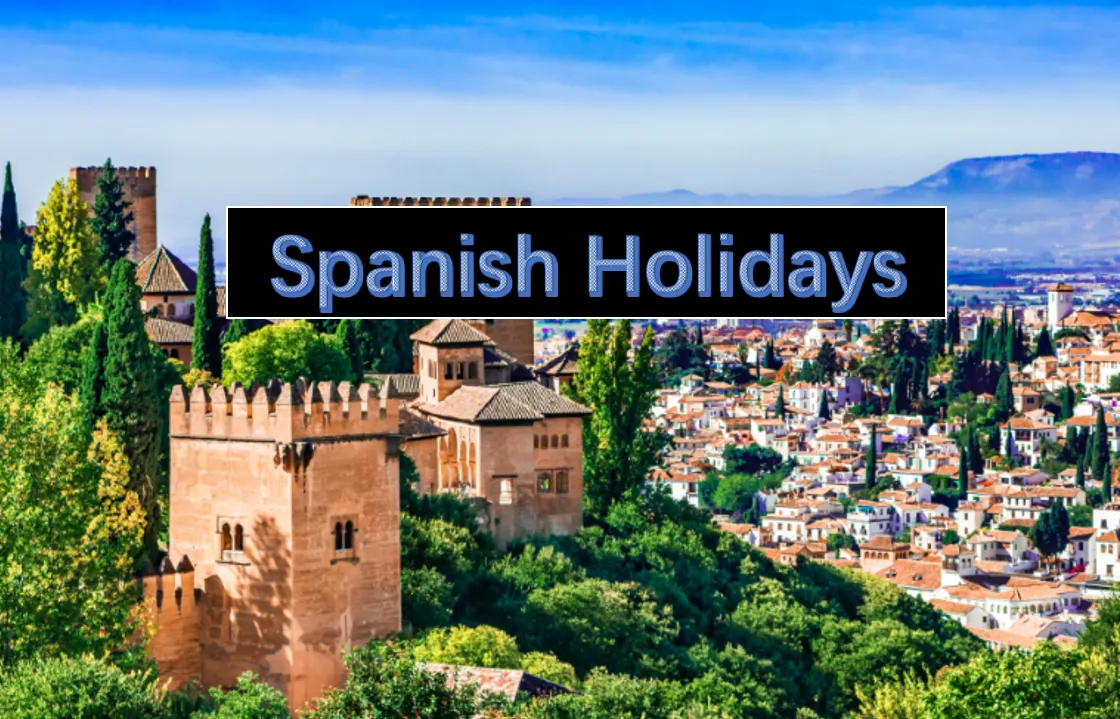
Discover the vibrant traditions and lively celebrations of Spain with our comprehensive guide to Spanish holidays. From the colorful parades of La Tomatina to the solemn processions of Semana Santa, each festival offers a unique glimpse into the rich culture and history of this diverse country. Whether you're a seasoned traveler or planning your first visit, immerse yourself in the local customs, delicious cuisine, and unforgettable experiences that await during Spain's festive seasons.
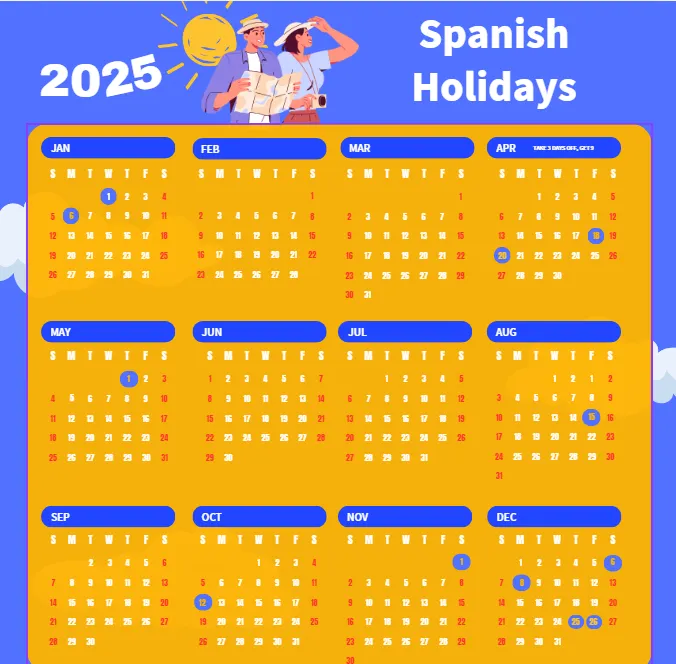
Here’s a table of Spanish holidays for 2025:
| Date | Day | Holiday Name | Regions |
| January 1 | Wednesday | New Year's Day | Nationwide |
| January 6 | Monday | Epiphany | Nationwide |
| March 19 | Wednesday | Saint Joseph's Day | Valencia |
| April 20 | Sunday | Easter Sunday | Nationwide |
| May 1 | Thursday | Labor Day | Nationwide |
| August 15 | Friday | Assumption of Mary | Nationwide |
| September 11 | Thursday | Catalonia Day | Catalonia |
| October 12 | Sunday | National Day | Nationwide |
| December 6 | Saturday | Constitution Day | Nationwide |
| December 8 | Monday | Immaculate Conception | Nationwide |
| December 25 | Thursday | Christmas Day | Nationwide |
Unlock Seamless Travel in Spain with eSIM from Trip.com
Traveling to Spain? Stay connected effortlessly with an eSIM from Trip.com! Our eSIM service offers you the convenience of high-speed mobile data without the hassle of physical SIM cards. Enjoy easy activation, flexible plans, and reliable coverage across the country, ensuring you can navigate, share, and stay in touch with loved ones while exploring Spain’s vibrant cities and stunning landscapes. Whether you're in bustling Barcelona or historic Seville, an eSIM keeps you connected and enhances your travel experience. Get your eSIM today and make the most of your Spanish adventure!

New Year’s Day (Año Nuevo)
Date: January 1
Significance: Marks the beginning of the new year.
Traditions: Eating 12 grapes at midnight, fireworks, and family gatherings.
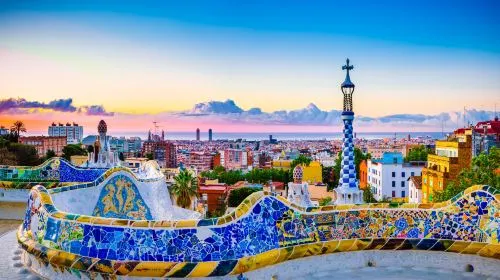
Overview
New Year’s Day, or Año Nuevo, is celebrated on January 1st and signifies a fresh start for many Spaniards. The festivities kick off on New Year's Eve, known as Nochevieja, where families gather to celebrate and share traditions.
How Spaniards Celebrate
- 12 Grapes: At midnight, it is customary to eat one grape for each chime of the clock, symbolizing good luck for each month of the new year.
- Fireworks: Many cities hold spectacular firework displays to welcome the new year.
- Family Gatherings: Families come together for festive meals, often enjoying traditional dishes and toasting with cava (Spanish sparkling wine).
Experience New Year’s in Spain
Join the festivities in vibrant cities like Madrid or Barcelona, where the celebrations are lively and unforgettable. Trip.com offers travel packages to help you experience the excitement of Año Nuevo firsthand.
Epiphany (Día de Reyes)
Date: January 6
Significance: Celebrates the arrival of the Three Wise Men.
Traditions: Parades, gifts, and the “Roscón de Reyes” cake.
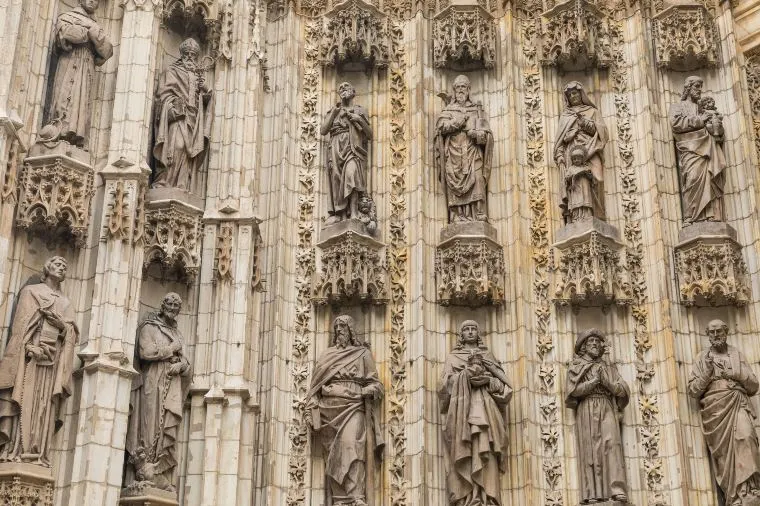
Overview
Epiphany, or Día de Reyes, marks the visit of the Magi to the Christ Child and is one of the most important holidays in Spain. It is traditionally a day for gift-giving, similar to Christmas in other cultures.
How Spaniards Celebrate
- Parades: Colorful parades featuring the Three Kings take place in many towns, with music, floats, and candy thrown to children.
- Gift Exchange: Many families exchange gifts on this day, a highlight for children eagerly awaiting presents.
- Roscón de Reyes: A special round cake, often decorated with fruits and containing hidden figurines, is shared among family and friends.
Experience Epiphany in Spain
Witness the magic of Día de Reyes in cities like Seville or Valencia, where the parades are grand and full of joy. Explore travel options on Trip.com to immerse yourself in this enchanting celebration.
Saint Joseph’s Day (Día de San José)
Date: March 19
Significance: Honors Saint Joseph, the patron saint of workers.
Traditions: Bonfires and festivities, especially in Valencia.
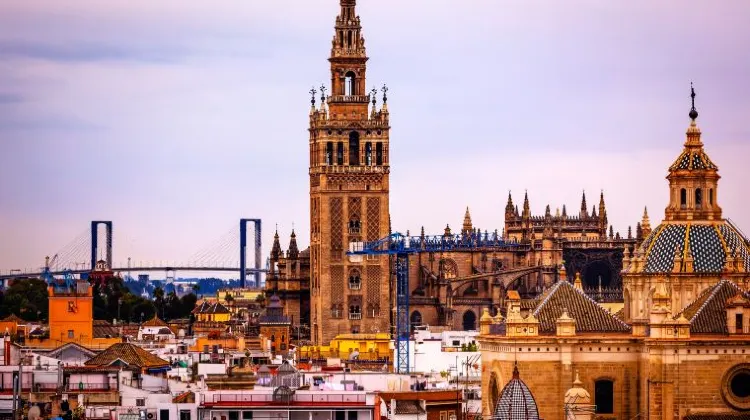
Overview
Saint Joseph’s Day is celebrated on March 19th and is particularly significant in Valencia, where the Fallas festival culminates in grand celebrations, including the burning of large sculptures.
How Spaniards Celebrate
- Fallas Festival: In Valencia, the festival includes fireworks, music, and the creation of large, artistic sculptures that are burned on the night of March 19th.
- Family Gatherings: Families often come together to celebrate with traditional foods and festivities.
Experience Saint Joseph’s Day in Spain
Visit Valencia to experience the spectacular Fallas festival firsthand. Trip.com offers packages to help you enjoy this unique celebration.
Easter Sunday (Domingo de Pascua)
Date: April 20
Significance: Celebrates the resurrection of Jesus Christ.
Traditions: Religious processions, feasting, and Easter eggs.
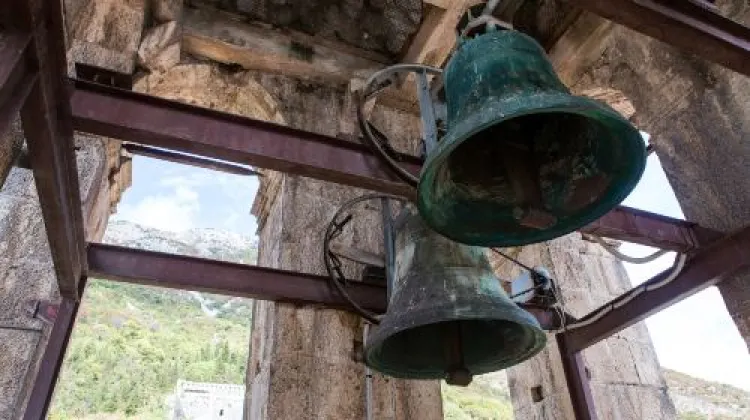
Overview
Easter Sunday, or Domingo de Pascua, is a pivotal day in the Christian calendar and is celebrated with various traditions across Spain, often culminating a week of observance during Holy Week (Semana Santa).
How Spaniards Celebrate
- Religious Processions: Cities like Seville are famous for their elaborate processions, featuring intricate floats and religious statues.
- Feasting: Families gather to enjoy traditional Easter dishes, often including lamb and various sweets.
- Easter Eggs: While less prominent than in other cultures, decorating eggs and chocolate treats are also enjoyed, especially by children.
Experience Easter in Spain
Experience the solemn beauty of Semana Santa and the festive joy of Easter Sunday in cities renowned for their celebrations. Book your trip through Trip.com to witness these rich traditions.
Labor Day (Día del Trabajador)
Date: May 1
Significance: Honors workers and labor rights.
Traditions: Demonstrations, parades, and cultural events.
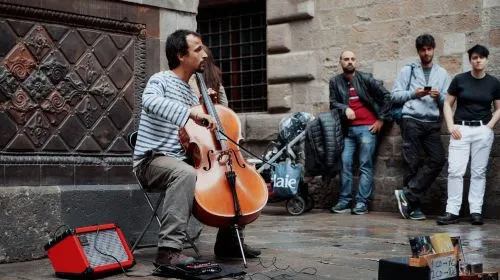
Overview
Labor Day, or Día del Trabajador, is celebrated on May 1st and is a day of solidarity for workers in Spain, marked by various events and demonstrations advocating for labor rights.
How Spaniards Celebrate
- Demonstrations: Large marches and demonstrations take place in major cities to promote workers' rights and social justice.
- Cultural Events: Many communities host concerts and festivals celebrating labor and culture.
- Family Gatherings: It is also common for families to gather for picnics and leisure activities on this public holiday.
Experience Labor Day in Spain
Join the spirited celebrations in cities like Madrid or Barcelona, where activism and community come together. Check out Trip.com for travel packages to experience this important day firsthand.
Assumption of Mary (Asunción de la Virgen)
Date: August 15
Significance: Celebrates the assumption of the Virgin Mary into heaven.
Traditions: Religious ceremonies, processions, and family gatherings.
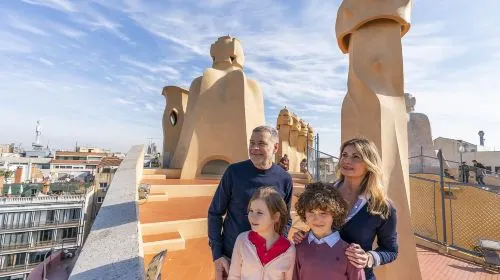
Overview
The Assumption of Mary is celebrated on August 15th and is a major religious holiday in Spain, often marked by processions and various local festivities.
How Spaniards Celebrate
- Religious Ceremonies: Many attend mass and participate in processions honoring the Virgin Mary.
- Local Festivities: Various towns celebrate with local fairs, traditional music, and food.
Experience the Assumption in Spain
Join the celebrations in towns famous for their unique festivities, such as those in Andalusia. Discover travel options on Trip.com to take part in this significant holiday.
Catalonia Day (Día Nacional de Cataluña)
Date: September 11
Significance: Celebrates the history and culture of Catalonia.
Traditions: Demonstrations, cultural events, and traditional Catalan foods.
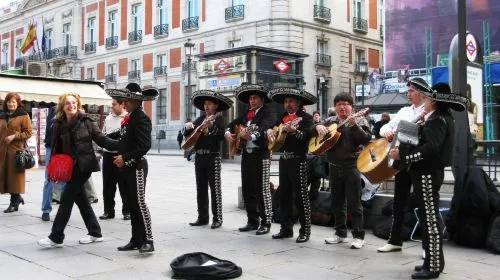
Overview
Catalonia Day, or La Diada, is celebrated on September 11th and commemorates the fall of Barcelona in 1714. It is a day of pride for Catalans, marked by various events highlighting Catalan culture and identity.
How Catalans Celebrate
- Demonstrations: Large gatherings advocating for Catalan independence take place throughout the region.
- Cultural Events: Concerts, exhibitions, and traditional dances showcase Catalan heritage.
Experience Catalonia Day in Spain
Experience the vibrant culture and spirited celebrations in Barcelona and beyond. Trip.com provides options to explore Catalonia during this significant day.
National Day (Día de la Hispanidad)
Date: October 12
Significance: Celebrates the arrival of Christopher Columbus in the Americas.
Traditions: Parades, cultural events, and military ceremonies.
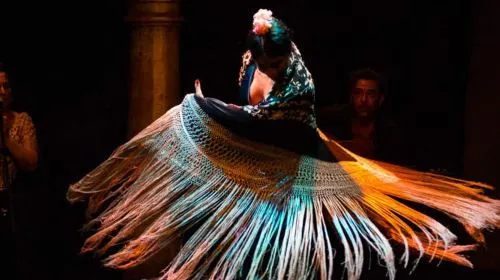
Overview
National Day, or Día de la Hispanidad, is celebrated on October 12th and honors Spain's cultural ties with Latin America. It is marked by parades and events across the country.
How Spaniards Celebrate
- Parades: Major cities host parades featuring traditional music, dance, and military displays.
- Cultural Events: Various festivities promote the rich cultural connections between Spain and Latin America.
Experience National Day in Spain
Join the celebrations in Madrid, where the largest events occur. Check out Trip.com for travel options to be part of this national holiday.
Constitution Day (Día de la Constitución)
Date: December 6
Significance: Commemorates the approval of the Spanish Constitution in 1978.
Traditions: Ceremonies, speeches, and public events.
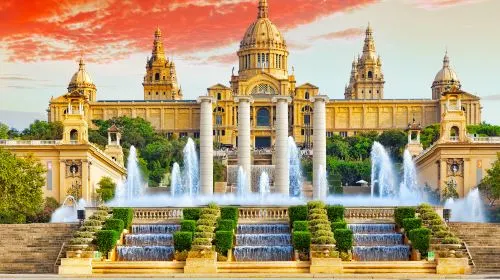
Overview
Constitution Day is celebrated on December 6th and marks the establishment of Spain's democratic constitution. It is a day of reflection and celebration of democratic values.
How Spaniards Celebrate
- Official Ceremonies: Various events take place, including speeches by political leaders and public gatherings.
- Cultural Activities: Many communities organize cultural events highlighting Spanish democracy and history.
Experience Constitution Day in Spain
Participate in the celebrations in cities like Madrid, where the significance of this day is highlighted through various events. Explore travel options on Trip.com to witness this important occasion.
Immaculate Conception (Inmaculada Concepción)
Date: December 8
Significance: Celebrates the belief in the Immaculate Conception of the Virgin Mary.
Traditions: Religious services and festive events.
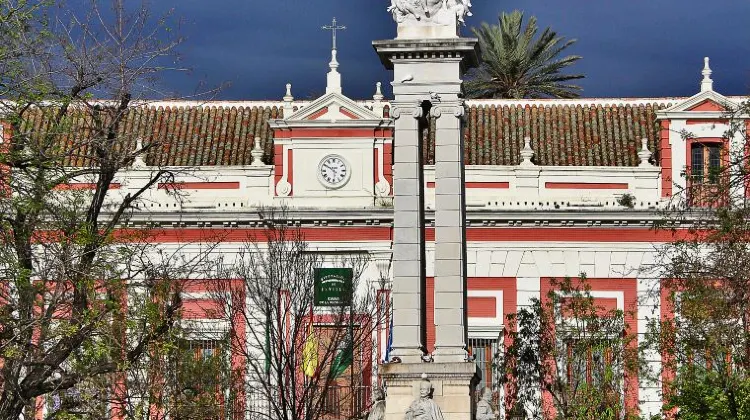
Overview
The Immaculate Conception is celebrated on December 8th and is an important religious holiday in Spain, often marked by various events and gatherings.
How Spaniards Celebrate
- Religious Services: Many attend mass and participate in religious ceremonies dedicated to the Virgin Mary.
- Local Festivities: In some regions, this day is also a time for local celebrations, fairs, and community gatherings.
Experience the Immaculate Conception in Spain
Join the religious and festive celebrations in towns known for their rich traditions. Check Trip.com for travel packages to explore this significant holiday.
Christmas Day (Día de Navidad)
Date: December 25
Significance: Celebrates the birth of Jesus Christ.
Traditions: Family gatherings, festive meals, and gift-giving.
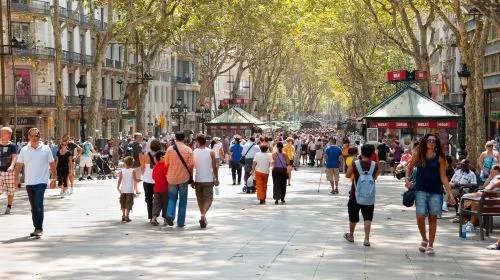
Overview
Christmas Day, or Día de Navidad, is celebrated on December 25th and is one of the most significant holidays in Spain. Families come together to celebrate with rich traditions and festive cheer.
How Spaniards Celebrate
- Family Gatherings: Christmas is primarily a family affair, with large meals featuring traditional dishes like roast lamb and seafood.
- Gift-Giving: In many regions, gifts are exchanged on Christmas Day, with a focus on family and togetherness.
Experience Christmas in Spain
Experience the warmth and joy of Christmas celebrations in cities like Barcelona or Madrid. Explore travel options on Trip.com to enjoy this festive season in Spain.
FAQs about Spanish Holidays
What is the main holiday in Spain?
The main holiday in Spain is Christmas (Día de Navidad), celebrated on December 25th. It's a significant family celebration featuring festive meals, gift-giving, and various traditions. Another major holiday is New Year's Day (Año Nuevo), celebrated with customs like eating 12 grapes at midnight for good luck. Additionally, the Epiphany (Día de Reyes) on January 6th, which celebrates the arrival of the Three Wise Men, is also widely celebrated and involves parades and gift exchanges.How many holidays are there in Spain each year?
Spain has a variety of public holidays each year, which can vary by region. Generally, there are about 14 national holidays, including both fixed and movable dates. In addition to these, each autonomous community may have its own local holidays, leading to a total of around 16 to 18 holidays for many regions. Key holidays include New Year’s Day, Epiphany, Labor Day, and Christmas, among others. Local festivals and traditions can also add more holidays throughout the year.Is Spain good for holiday?
Yes, Spain is a fantastic destination for holidays! It offers a rich mix of history, culture, beautiful landscapes, and diverse activities. Here are some reasons why Spain is great for a holiday: Diverse Regions: From the beaches of Costa del Sol to the historic cities of Barcelona and Seville, each region has its unique charm. Cultural Heritage: Spain is home to numerous UNESCO World Heritage sites, including stunning architecture like the Alhambra and Sagrada Família. Cuisine: Spanish food is world-renowned, with tapas, paella, and regional specialties that cater to all tastes. Festivals: The country hosts vibrant festivals throughout the year, such as La Tomatina, Running of the Bulls, and Semana Santa. Outdoor Activities: Spain offers excellent opportunities for hiking, cycling, and water sports, particularly in regions like the Pyrenees and along the coast. Mild Climate: Many parts of Spain enjoy a Mediterranean climate, making it a great year-round destination. Overall, Spain has something for every traveler, whether you're interested in history, relaxation, adventure, or gastronomy.Is Spain friendly to foreigners?
Yes, Spain is generally very friendly and welcoming to foreigners, with locals often eager to share their culture and traditions.
